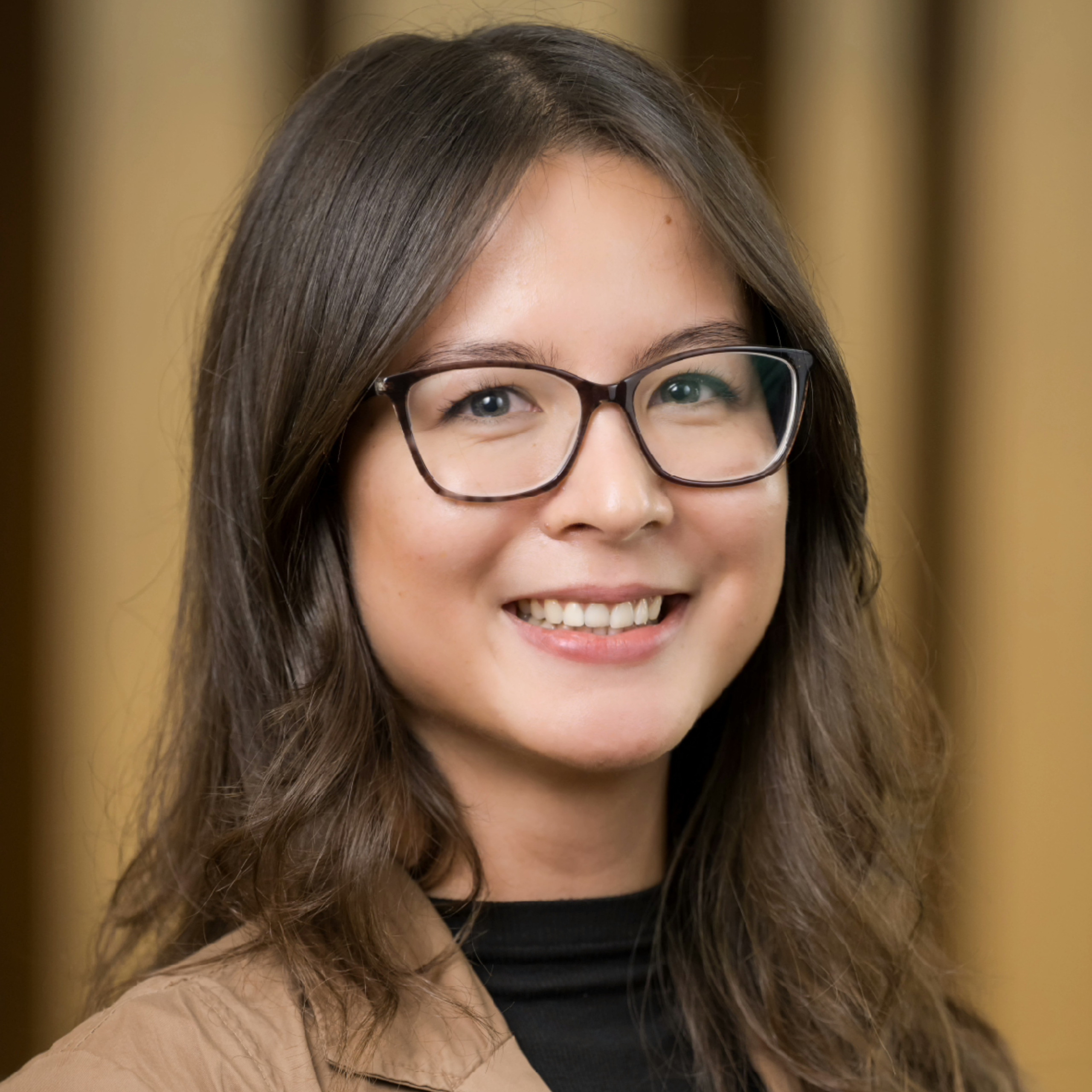
Graduate Diploma in Chartered Professional Accountancy
The Program
The Chartered Professional Accountancy (CPA) Graduate Diploma program at the Telfer School of Management is a four-month case-based program that allows you to gain knowledge in financial reporting, strategy and governance, management accounting, audit and assurance, finance and taxation. Accredited by CPA Ontario and recognized by CPA Quebec, this diploma helps you earn your CPA designation faster by saving you at least four months of CPA study time. Build your toolkit of accounting skills and knowledge that are in high demand by top organizations.
The Telfer CPA Graduate Diploma has been instrumental since its inception in 2017 in helping 97% of our candidates pass the CPA Canada Common Final Exam (CFE), required to be eligible for admission into the CPA Profession in Canada.
Why the Telfer CPA Diploma?
Earning this full-time, graduate-level diploma speeds up the completion of your CPA designation requirements by shortening your time spent on the Chartered Professional Accountants’ Professional Education Program (CPA PEP) courses by four to eight months.
Courses include relevant lectures and case analyses that explore over 75 CFE-type cases. Cases and exam questions are similar to those found on the Common Final Examination (CFE). Your success in the program serves as a clear indicator of excelling at the CFE.
During the week, you attend morning classes to explore a new case, and then have time to work on case preparation, case debriefing, and topical readings in the afternoon. Attend classes, complete casework, and study after class alongside your classmates throughout the program.
Our CPA Graduate Diploma has been specifically designed for Telfer BCom Accounting graduates. Complete key CPA courses in University of Ottawa classrooms, with constant access to CPA-designated professors. Attend lectures taught by knowledgeable Telfer accounting professors and CPA Graduate Diploma alumni who have modelled coursework and exams based on the CFE. Ask questions and receive immediate guidance on daily casework and exam preparation from your instructors.
Quick Facts
CPA Graduate Diploma – In English
- Units:
- 15 units over the course of one term
- Duration:
- 4 months
- Schedule:
- Monday to Friday, class from 8:30 a.m. to 11:30 a.m.
- Class Experience:
- 30 to 50 students per class
- Offer:
- Courses in English
- Timeline:
- Fall term - September to December
CPA Graduate Diploma – In French
- Units:
- 15 units over the course of one term
- Duration:
- 4 months
- Schedule:
- Monday to Friday, class from 8:30 a.m. to 11:30 a.m.
- Class Experience:
- 15 to 25 students per class
- Offer:
- Courses in French
- Timeline:
- Fall term - September to December
The CPA Designation
To practice as a professional accountant, you will need the coveted Chartered Professional Accountant (CPA) designation. The CPA designation equips you with skills and knowledge that are in high demand by top organizations and enables you to pursue purpose-driven work. Being a CPA gives you the opportunity to build the career you want and explore countless opportunities in accounting and finance. CPAs are in demand due to their financial expertise, strategic thinking, business insight, and management skills.
To earn your CPA designation, you need to complete:
- Prerequisite learning in the Bachelor of Commerce in Accounting
- Chartered Professional Accountants’ Professional Education Program (CPA PEP) curriculum
- A three-day Common Final Examination (CFE)
- Practical work experience (30 months for CPA Ontario, or 24 months for CPA Quebec)
Once you earn your designation, you will open doors to new opportunities and salary increases. The average salary of a CPA in Ontario is currently around $185,000, in roles related to marketing, strategy and governance, business development, or consulting.
Courses
The Telfer CPA Graduate Diploma covers the first four Chartered Professional Accountants’ Professional Education Program (CPA PEP) course content (Core 1, Core 2, Elective 1 and Elective 2) in just four months (one term). This exempts you from completing these four courses online and gives you advanced standing in the CPA PEP program.
Complete five key courses in the Telfer CPA Diploma to deepen your knowledge of financial reporting; strategy and governance; management accounting; audit and assurance; and finance and taxation. During the program you will be evaluated on your class participation, casework, and two CFE-style exams (a mid-term and final).
Fall
- CPT 5100 Advanced Competencies in Financial Accounting (3 units)
- CPT 5101 Advanced Competencies in Audit, Assurance and Governance (3 units)
- CPT 5102 Advanced Competencies in Strategy and Management Accounting (3 units)
- CPT 5103 Advanced Competencies in Taxation (3 units)
- CPT 5104 Integration of Advanced Competencies in Accountancy (3 units)
Fall
- CPT 5500 Compétences avancées en comptabilité financière (3 units)
- CPT 5501 Compétences avancées en audit, certification et gouvernance (3 units)
- CPT 5502 Compétences avancées en stratégie et comptabilité de gestion (3 units)
- CPT 5503 Compétences avancées en fiscalité (3 units)
- CPT 5504 Intégration des compétences avancées en comptabilité (3 units)
Testimonials

Telfer's Graduate Diploma in Chartered Professional Accountancy provided me with a solid foundation in the skills and competencies required to be a CPA and pass the Common Final Exam (CFE).
The faculty has extensive knowledge about both the technical material and the CPA process. This program's approach prepared me for the CFE through technical learning, writing plenty of practice CFE cases, and building connections with other CPA students.— Rachel Fong, Telfer BCom, CPA Graduate Diploma (English) ‘21, CPA, CFE
CPA Canada CFE Honour Roll ‘22
Manager, Deloitte

I took a chance at registering for the Graduate Diploma in Chartered Professional Accountancy at Telfer, and it really paid off.
The professors were not only knowledgeable in their respective course subjects, but also about the process of becoming a CPA, including providing lots of helpful tips and tricks about the CFE. I felt prepared going into the CFE and the program helped accelerate my path towards my CPA designation.— Ziye Zhang, Telfer BCom ‘18, CPA Graduate Diploma (French) '19, CPA, CISA
Part-Time Professor, Telfer School of Management
Manager, Canada Revenue Agency
As a Summer 2024 graduate of Carleton University's Honours Bachelor of Commerce program, I took advantage of the exchange partnership with uOttawa during my studies to complete the necessary courses for admission into the CPA Graduate Diploma.
The fast-track, four-month CPA program provided excellent preparation for the Common Final Examination (CFE), especially through its strong focus on case writing. I truly appreciated the opportunity to learn from the knowledgeable professors at both institutions.— Nina Sun, Telfer BCom 2024
Telfer CPA Graduate Diploma Student
Admission
Admission Criteria
A Canadian bachelor’s degree with a minimum admission average of 6.0 or B (70%) is required. International equivalencies will not be accepted. The admission average is calculated in accordance with Graduate Studies guidelines.
Note: If you have an international undergraduate degree, you can contact InfoAdmission at the University of Ottawa to determine your eligibility for the Telfer BCom degree.
The Telfer Bachelor of Commerce in Accounting covers all course prerequisites per CPA Canada standards.
If you are completing or have completed your undergraduate degree at another Canadian university, you may be eligible to receive a conditional offer of admission. Apply to the program to determine your eligibility.
Core courses
Applicants require a minimum average of 6.0 or B (70%) in the required 17 core undergraduate courses.
Applicants require a minimum grade of C (60%) in each of these courses, or their equivalent, listed below:
-
ADM 2342 Intermediate Accounting I
-
ADM 2350 Financial Management
-
ADM 2372 Management Information Systems
-
ADM 3340 Intermediate Accounting II
-
ADM 3345 Taxation I
-
ADM 3346 Cost Accounting
-
ADM 3349 Auditing Theory
-
ADM 3350 Corporate Finance
-
ADM 4311 Strategic Management
-
ADM 4340 Case Studies in Accounting
-
ADM 4341 Advanced Auditing
-
ADM 4343 Data Analytics in Accounting
-
ADM 4344 Taxation II
-
ADM 4345 Management Control Systems
-
ADM 4346 Auditing in a Digital Environment
-
ADM 4348 Special Topics in Financial Accounting
-
ADM 4349 Advanced Accounting
Non-core courses
Applicants require a minimum grade of D (50%) in each of the 7 non-core undergraduate courses, or their equivalent, listed below:
-
ECO 1102 Introduction to Macroeconomics
-
ECO 1104 Introduction to Microeconomics
-
ADM 1340 Financial Accounting
-
ADM 2341 Managerial Accounting
-
ADM 2303 Statistics for Management
-
ADM 2304 Applications of Statistical Methods in Business
-
ADM 3360 Business Law
NEW: Telfer offers the following courses in English during the spring-summer term to help you meet the admission requirements in time for the fall program:
- ADM 4340 Case Studies in Accounting
- ADM 4341 Advanced Auditing
- ADM 4346 Auditing in a Digital Environment
Carleton University students may take advantage of the University exchange program to complete these courses.
Application Process
Submit your application through the Ontario Universities’ Application Centre (OUAC).
If you completed your Bachelor of Commerce at the Telfer School of Management, you do not need to submit any documentation in your application. If you completed your undergraduate degree at another Canadian university, you must send us your transcript.
Information Sessions
Attend an information session to learn more about the program, understand admission requirements, and ask questions. Learn how the Telfer CPA Graduate Diploma prepares you for CFE success.
| Date | Time | Location |
|---|---|---|
|
Monday, March 27, 2023 |
12:00 P.M. – 1:00 P.M. |
Virtual Session |
|
French CPA - Monday, September 25 2023 |
12:00 P.M. – 1:00 P.M. |
Virtual Session |
|
Monday, October 16, 2023 |
12:00 P.M. – 1:00 P.M. |
Virtual Session |
|
Monday, November 13 2023 |
12:00 P.M. – 1:00 P.M. |
Virtual Session |
|
Monday, January 29, 2024 |
12:00 P.M. – 1:00 P.M. | Virtual Session (French only) |
|
Monday, March 18, 2024 |
12:00 P.M. – 1:00 P.M. | Virtual Session (French only) |
| Monday, March 25, 2024 | 12:00 P.M. – 1:00 P.M. | Virtual Session |
|
Monday, November 25, 2024 |
12:00 P.M. – 1:00 P.M. | Virtual Session (French only) |
|
Monday, February 3, 2025 |
12:00 P.M. – 1:00 P.M. | Virtual Session |
| Monday, November 17, 2025 | 12:00 P.M. – 1:00 P.M. | Virtual Session (French only) |
| Monday, February 2, 2026 | 12:00 P.M. – 1:00 P.M. | Virtual Session |
Application Deadlines
Submit your application by the following dates:
English session applicants for the Fall term
French session applicants for the Fall term
Students
Timeline for Completing Your Studies
| Fall and/or Winter |
|
| Spring-Summer |
|
| Fall | Take the Telfer CPA Graduate Diploma – September to December |
| Winter | Complete CPA Ontario Capstone 1 – January to March |
| Spring-Summer |
Complete CPA Ontario Capstone 2 – April Write Common Final Exam (CFE) – May* |
*Alternatively, you can choose to write the CFE in September, but CPA Ontario recommends that students complete Capstone 1 and Capstone 2 right before writing the exam. This means you would complete Capstone 1 in May and Capstone 2 in July.
Preparing for the Graduate Diploma
To maximize your student experience and success in the program, you will need to review the competencies you developed at the undergraduate level before beginning the graduate program. This reflects with the self-management enabling competency specified in the Canadian Chartered Professional Accountant Competency Map.
Your self-revision should cover the following courses:
- Financial Accounting: ADM 2342 / 3340 / 4348 / 4349
- Management Accounting: ADM 2341 / 3346 / 4345
- Auditing: ADM 3349 / 4341 / 4346
- Taxation: ADM 3345 / 4344
- Finance: ADM 2350 / 3350
This self-study program will ensure that all students are at a similar level when they undertake case studies in the graduate diploma courses.
To complete your review, our graduate diploma professors recommend the CPA Competency Map Study Notes from Densmore Consulting Services Inc.
Career Opportunities
Your CPA designation will elevate your career in accounting. More job opportunities will be open to you in government, private sector, and industry practice including in financial institutions, property management, provincial or federal government organizations, consumer-packaged goods, and more. You will be prepared for analyst, auditor, controller, and accountant roles and have the opportunity to grow in your role.
Fees and Financing
Tuition Fees
The program tuition fees are approximately $11,000 CAD. This amount does not include incidental fees and the cost of books, case materials and any other instructional supplies.
Admission Scholarships
Admission scholarships will be awarded based on undergraduate academic performance.
| Scholarship Amount | Number available for distribution | Language of study | Admission average | Applicant undergraduate degree |
|---|---|---|---|---|
| $1,500 | 15 | English | A- (8.0) + | Bachelor of Commerce or Bachelor of Administration |
| $5,000 | 2 | English | A (9.0) + | Bachelor of Commerce from the Telfer School of Management |
| $1,500 | 8 | French | A- (8.0) + | Bachelor of Commerce or Bachelor of Administration |
| $5,000 | 2 | French | A (9.0) + | Bachelor of Commerce from the Telfer School of Management |
FAQ
If you are completing or have completed your undergraduate degree at a Canadian university, Yes, you can receive a conditional offer of admission pending the completion of the remaining prerequisite courses.
Telfer BCom applicants: You can apply in the fall or winter term of your fourth year.
Non-Telfer applicants: The three courses most commonly missing for applicants with other Canadian undergraduate degrees are: ADM 4340 Case Studies in Accounting, ADM 4341 Advanced Auditing, and ADM 4346 Auditing in a Digital Environment. We now offer these courses during the spring-summer term to prepare applicants to start the program in the fall of the same year.

